TABLE OF CONTENTS
Best European Beer Types
Trappist is a particular category of beers, or more precisely an indication of origin, which includes various styles that are brewed in Trappist monasteries. Trappist beers are internationally certified and can only be produced by Trappist abbeys—which include six located in Belgium and two in the Netherlands, while Italy, Austria, England, France, the United States, and Spain all have one certified Trappist brewery.
All abbeys develop their yeast, and the regulations also stipulate that the beer must be brewed within the immediate surroundings of the abbey and that the entire production needs to be supervised by monks. Similar beer styles that are produced in non-Trappist monasteries are usually referred to as Abbey-style beers.
VARIATIONS OF Trappist Beer
Belgian-style tripel is an approachable and easy-drinking beer style with high carbonation and complex flavors. They traditionally have high alcohol content, falling between a 7 to 10% ABV range, and are often classified as very strong ales.
These yellow-golden beers typically have a distinctive spicy, fruity, and subtly sweet malt character. Their yeast character varies, but it often includes banana or clove-like aromas. First tripels were produced as abbey beers, while the Westmalle Tripel is widely considered as the prototype.
České pivo is a term that refers to a variety of beers produced throughout the whole Czech Republic that have a Protected Geographical Indication (PGI) mark. The mark is used by fourteen breweries in the country for more than 80 brands of beer, which is about 65% of the total domestic market.
The first records of brewing beer of excellent quality in the country are connected to the Brevnov Monastery, where the monks produced beer all the way back in 993 AD. The beers are distinguished by the top-quality raw materials used in the process, the traditional methods of brewing, and the local know-how passed on from generation to generation.
Dubbel is a rich and well-balanced Trappist beer that originated in Belgium and whose modern version is often associated with Henrik Verlinden who created the prototype at Westmalle brewery in 1926. This version was named Dubbel Bruin, and soon after its invention, the style was copied in many Belgian breweries.
Unlike other brown beers, typical Belgian dubbel will get its flavor from candi sugar—a thick and dark caramelized syrup that is added to the wort. These beers typically range from amber to copper, and they will usually have complex aromas and flavors reminiscent of toffee, raisins, malt, and dark fruit.
THE BEST Dubbel Ales

Weissbier is a classic Bavarian wheat ale that is top-fermented and characterized by its mousse-like foam and cloudy appearance—which is a result of a large proportion of wheat and a small amount of barley malt used in its production.
German weissbier has to be made with at least 50% malted wheat, but most producers use more than the minimum. These beers are fermented with yeast strains that provide typical clove, banana, smoke, and occasionally even bubble gum aroma. Weissbiers are typically malty and subtly bitter, and though they are traditionally fermented in the bottle, this practice has become rare.
THE BEST Weissbier Ales


Lambic is a traditional beer style that has its roots in Brussels and the region of Pajottenland. This style must be made with a minimum of 30% wheat, and the wort is always spontaneously fermented with local and naturally occurring wild yeasts.
Because of different local microorganisms, these beers always have a unique and frequently unpredictable character. Due to its wild nature, many batches of lambic are sometimes blended, a style known as gueuze or geuze, to produce a more palatable version.
VARIATIONS OF Lambic
THE BEST Lambic Ales
Bavaria has been an important beer-producing region for centuries, and all Bavarian beers are produced under 1516 Bavarian Purity Law. The beers are made with high-quality ingredients, which are mostly locally-sourced, and the quality of the beer and the components is continuously checked by scientific institutes.
Today, there are more than 600 breweries in Bavaria – nearly half of all the breweries in Germany, and every year, Bavarian brewers produce more than 20 million hectoliters of beer. The styles that appear in the region and that can be labeled as Bayerisches Bier include: Schankbier, Hell/Lager, Pils, Export, Dunkel, Schwarzbier, Märzen/Festbier, Bock, Doppelbock, Weizenschankbier, Weizenbier, Kristallweizen, Rauchbier, Kellerbier/Zwickelbier, and Eisbier/Icebier.
In the 19th century, artisanal breweries were increasingly being replaced by larger industrial breweries, and today there are seven famous large breweries in Munich: Augustiner, Hofbräu, Paulaner, Hacker-Pschorr, Löwenbräu, Spaten, and Franziskaner.
Together, these seven breweries produce around 6 million hectoliters of beer per year. Even today, these breweries use no additives, as dictated by the Munich Beer Purity Law of 1487. This not only has to do with tradition, but with long-established high ethical values.
Chodské pivo has been produced in the historic Chodsko region (Plzeň) since the 12th century. It is made from locally sourced water with low mineral content, hops, malt, and yeast. Only Žatecký poloraný červeňák, Sládek, and Premiant hop varieties can be used in its production.
Due to the two-stage fermentation process, lengthy maturation, and the choice of specific raw materials, Chodské pivo is golden, rich, and malty, while its flavor is slightly bitter and strong. This beer is held in high regard, and it was even supplied to the royal courts of Prague and Bavaria.
Helles is a German-style lager that first appeared in Munich in 1894. It was a Bavarian answer to light Czech pilsner. Although Bavaria heavily relied on strong and dark lagers, the popularity of crisp and golden pilsner beers influenced Bavarian brewers to start producing a similar style.
Traditional Helles is typically more malt-forward and has a firmer body than pilsner and other lager styles, but still remains soft and medium-bodied. It is clean, easy-drinking, refined, fresh, and dry, with light hop bitterness and subtle malt sweetness.
THE BEST Helles Lagers

TABLE OF CONTENTS
Best European Beer Producers
AWARDS
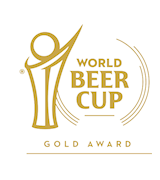
World Beer Cup - Gold
2024

Frankfurt International Trophy - Grand Gold
2023, 2021

European Beer Star - Gold
2020
BEST Brauerei Aying Franz Inselkammer Beers
Cervezas La Salve is a Spanish brewery based in Bilbao, with a rich history dating back to 1886. After several decades of dormancy, the brewery was revived in 2014 with the goal of bringing traditional Basque brewing back to life. Its philosophy is rooted in sustainability, quality, and a strong connection to the local community.
La Salve offers a diverse range of beers, including classic styles like lagers and pale ales, as well as more modern craft beer variations. The brewery prides itself on using local ingredients and innovative recipes, creating beers known for their balanced taste and distinctive aromas.
AWARDS

Frankfurt International Trophy - Grand Gold
2024, 2022
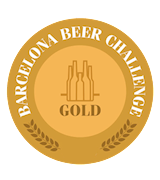
Barcelona Beer Challenge - Gold
2023, 2022, 2021, 2020
BEST La Salve Beers
AWARDS
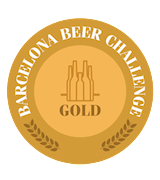
Barcelona Beer Challenge - Gold
2023

European Beer Star - Gold
2023, 2022
BEST 50&50 Beers
AWARDS

World Beer Awards - Gold
2023

World Beer Awards - Country Winner
2023

International Beer Challenge - Best Lager up to 5%
2022
BEST Thornbridge Brewery Beers
Joseph Holt is a historic, family-run brewery based in Manchester, England, founded in 1849. Known for its rich brewing heritage, the company produces a diverse range of traditional ales, lagers, and craft beers, maintaining a strong commitment to quality and innovation.
With over 125 pubs across the North West, Joseph Holt is recognized for its award-winning beers and dedication to supporting local communities. The brewery remains independent and family-owned, preserving its legacy while embracing modern brewing techniques.
AWARDS

International Brewing Awards - Gold
2024, 2021, 2017
BEST Joseph Holt Beers
Birrificio Bionoc’ is an Italian craft brewery located in the beautiful region of Trentino, in the northern part of Italy. Known for its commitment to quality and innovation, Bionoc’ creates a variety of beers that reflect the rich natural surroundings of its location.
The brewery specializes in crafting beers with unique flavors, using locally sourced ingredients and traditional brewing methods. Their offerings often include a range of styles, from light lagers to more complex ales, focusing on balance and drinkability.
AWARDS

Barcelona Beer Challenge - Gold
2024, 2023, 2022, 2021, 2020
BEST Birrificio Bionoc’ Beers
AWARDS

France Bière Challenge - Gold
2024, 2022, 2021
BEST PBC Distribution Beers
Corporación Hijos de Rivera is a Spanish beverage company renowned for its flagship beer brand, Estrella Galicia, founded in 1906 in A Coruña, Galicia. It is a family-owned company that combines tradition with innovation to produce high-quality beers, ciders, and mineral waters.
Their portfolio includes a wide range of products, such as craft beers under the brand 1906, Maeloc ciders, and Cabreiroá mineral water. With a strong focus on sustainability and innovation, the company continues to expand globally while preserving its Galician roots.
AWARDS

European Beer Star - Gold
2022, 2020

International Beer Challenge - Supreme Champion & Best Lager above 5%
2022
BEST Hijos de Rivera Beers
AWARDS

World Beer Awards - Gold
2023

International Beer Challenge - Best Flavoured Beer
2023

International Beer Challenge - Best Speciality Beer
2023
BEST Glen Affric Brewery Beers
TABLE OF CONTENTS
Best European Beers
AWARDS

World Beer Cup - Gold
2024

Frankfurt International Trophy - Grand Gold
2021

European Beer Star - Gold
2020
AWARDS

European Beer Star - Gold
2022

International Beer Challenge - Supreme Champion & Best Lager above 5%
2022
AWARDS

European Beer Star - Gold
2023, 2022
AWARDS
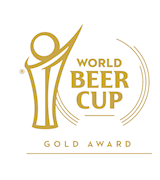
World Beer Cup - Gold
2023, 2022
AWARDS

European Beer Star - Gold
2023, 2021
AWARDS

European Beer Star - Gold
2023, 2021
AWARDS

World Beer Cup - Gold
2022
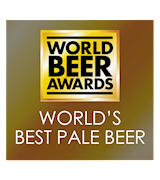
World Beer Awards - World’s Best Pale Beer
2021
AWARDS

World Beer Awards - Gold
2023

World Beer Awards - Country Winner
2023
AWARDS

World Beer Awards - Gold
2023

World Beer Awards - Country Winner
2023
AWARDS

World Beer Awards - Gold
2023

World Beer Awards - Country Winner
2023
TasteAtlas food rankings are based on the ratings of the TasteAtlas audience, with a series of mechanisms that recognize real users and that ignore bot, nationalist or local patriotic ratings, and give additional value to the ratings of users that the system recognizes as knowledgeable. For the “Top 100 European Beers” list until March 24, 2025, 5,283 ratings were recorded, of which 4,742 were recognized by the system as legitimate. TasteAtlas Rankings should not be seen as the final global conclusion about food. Their purpose is to promote excellent local foods, instill pride in traditional dishes, and arouse curiosity about dishes you haven’t tried.


















































































































































































